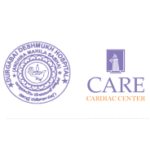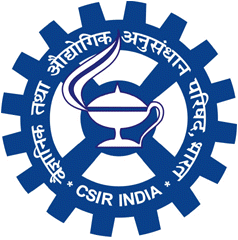Treatments Focus
Gastroesophageal reflux disease (GERD)

Everyone at some point of your life must have experienced sour or bitter taste in your mouth after having food. This is due to Gastroesophageal reflux disease, also known as chronic acid reflux, is a condition in which acid juices in your stomach fluids up back into the oesophagus (tube from throat to stomach).
When food reaches your stomach, a valve at the end of your oesophagus called the lower oesophageal sphincter fails to seal properly, causing acid reflux. Acid backwash then travels up your oesophagus, through your throat, and into your mouth, leaving you with a sour taste. Acid reflux affects many people and occurs regularly in some people.
Symptoms of GERD:
The main symptom of chronic acid reflux is heart burn (acid indigestion). You may feel like having a chest pain starting from your breastbone and moving to your neck and throat, leaving an acid or bitter taste in your mouth.
Besides pain, you may also experience:
Difficulty or pain
while swallowing
Acid regurgitation
(re-tasting your food after eating)
Sore throat
Chronic cough
Disrupted sleep
Laryngitis
(inflammation to your voice box)
Nausea
Loss of appetite
Blood vomits or stools
Causes of GERD:
GERD can be caused by a variety of factors that influence your lower oesophageal sphincter.
- Pregnancy (experience heartburn regularly due to increased pressure)
- Overweight or obesity
- Taking certain medications can make your symptoms worse (asthma, high blood pressure and allergies, painkillers, and anti-depressants).
- Eating dairy, spicy or fried foods
- Smoking
- Hiatal hernia (condition in which the opening in your diaphragm lets the upper part of the stomach move up into your chest).
Diagnosis and treatment:
Diagnosis of GERD is based on the physical examination and your history of signs and symptoms. Your doctor may recommend you for endoscopy, X-rays or ambulatory acid probe tests.
Life style and the dietary changes are the first step in treating GRED. For example, avoiding foods that increase acid levels, avoid large meals and fatty foods, etc.
Your doctor may prescribe you some medications if lifestyle and dietary changes doesn’t work. Medications like antacids, proton pump inhibitors, etc are recommended to decrease acid production. If lifestyle and medications doesn’t work or you are unable to take drugs for an extended period of time, surgery may be an option to relieve the symptoms.
FAQ's :
Genetics along with environmental factors play a role in causing acid reflux. According to studies, genetic contribution seems to play a crucial role in the development of GERD and GERD-related diseases and it has also shown some percent of heritability.
Individuals having a family history of gastrointestinal issues are at high risk. Obesity has been linked to a six-fold increase in the risk of GERD. Other risk factors include smoking, pregnancy, hiatal hernia, heavy alcohol intake.
Genetics is widely used to address the underlying disease mechanisms and provide potential new targets for personalised drug treatments and biomarkers for patient stratification.
Yes, avoiding certain foods like caffeinated beverages, alcohol, acid liquids, spicy and fatty foods can reduce your symptoms. Quitting smoking and avoiding laying down immediately after having your meals may also help improve your condition.
References:
- GERD (Chronic Acid Reflux). Cleveland Clinic. https://my.clevelandclinic.org/health/diseases/17019-gerd-or-acid-reflux-or-heartburn-overview#symptoms-and-causes Accessed on: 11-03-2022.
- Gastroesophageal reflux disease (GERD). MAYO CLINIC. https://www.mayoclinic.org/diseases-conditions/gerd/diagnosis-treatment/drc-20361959 Accessed on: 11-03-2022.
- Gastroesophageal reflux disease. American Academy of Allergy Asthma and Immunology. https://www.aaaai.org/Conditions-Treatments/related-conditions/gastroesophageal-reflux-disease Accessed on: 11-03-2022.
- Acid Reflux (GER and GERD in adults). National Institute of Diabetes and Digestive and Kidney Diseases. https://www.niddk.nih.gov/health-information/digestive-diseases/acid-reflux-ger-gerd-adults/treatment Accessed on: 11-03-2022
- Heartburn and Acid Reflux: What You Need to Know. Cedars Sinai. https://www.cedars-sinai.org/blog/what-causes-heartburn-and-acid-reflux.html Accessed on: 11-03-2022.
- Gastroesophageal Reflux Disease (GERD) Treatment. JOHNS HOPKINS MEDICINE. https://www.hopkinsmedicine.org/health/treatment-tests-and-therapies/gastroesophageal-reflux-disease-gerd-treatment Accessed on: 11-03-2022.
- Refractory Gastroesophageal Reflux Disease: A Management Update. Frontiers in medicine. https://www.frontiersin.org/articles/10.3389/fmed.2021.765061/full
- https://www.scripps.org/news_items/3615-digestive-health-what-are-the-best-gerd-treatment-options Accessed on: 11-03-2022.
- What is GERD. https://aboutgerd.org/treatment/surgery/surgical-treatments/#:~:text=The%20newest%20therapy%20is%20the,have%20not%20yet%20been%20completed. Accessed on: 11-03-2022.
- Risk factors for gastroesophageal reflux disease and analysis of genetic contributors. NCBI. https://www.ncbi.nlm.nih.gov/pmc/articles/PMC6107529/ Accessed on: 11-03-2022.
- Polymorphisms of the BARX1 and ADAMTS17 Locus Genes in Individuals With Gastroesophageal Reflux Disease. Journal of Neurogastroenterology and Motility. https://www.jnmjournal.org/journal/view.html?uid=1513&vmd=Full Accessed on: 11-03-2022.
- 4-Aminobutyrate Aminotransferase (ABAT): Genetic and Pharmacological Evidence for an Involvement in Gastro Esophageal Reflux Disease. PLOS ONE. https://journals.plos.org/plosone/article?id=10.1371/journal.pone.0019095 Accessed on: 11-03-2022.
- Different Traditional Herbal Medicines for the Treatment of Gastroesophageal Reflux Disease in Adults. Frontiers in Pharmacology. https://www.frontiersin.org/articles/10.3389/fphar.2020.00884/full Accessed on: 11-03-2022.
Related Articles
Book an Appointment to understand how GenepoweRx can help you in treating
Gastroesophageal reflux disease (GERD)
Meet The Doctors
Dr Kalyan Uppaluri
Dr Hima Challa
Your genetics … Your Test ... Your Health Success
It’s always the word of mouth that’s the best advice. Here are some of our…


Our Partners






Professional Partnerships
Government Association

